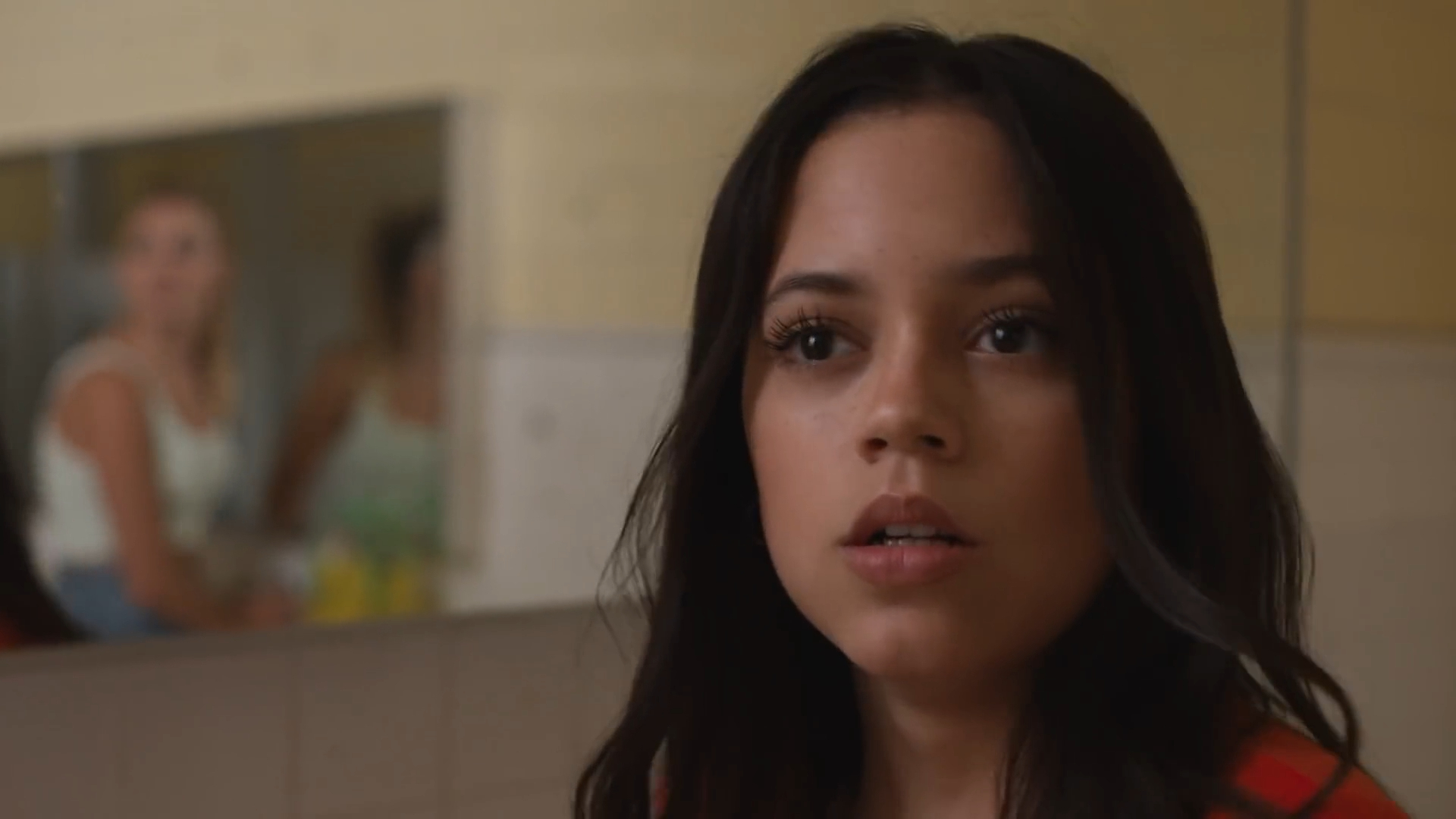The Fallout is a compelling emotional drama directed by Megan Park that delves into the aftermath of a school shooting. It follows Vada (Jenna Ortega), a young survivor grappling with trauma. The film illustrates the long-term impact of such violence, emphasizing that healing is neither simple nor linear. The film’s ending is particularly significant as it portrays the enduring and often overlooked consequences of trauma.
In the film’s opening moments, the audience is thrust into the chaos of a school shooting. Vada, along with her classmates Mia (Maddie Ziegler) and Quinton (Niles Fitch), hides in a bathroom stall, and the experience profoundly alters them. The movie traces Vada’s struggle to understand her emotions and cope with the traumatic event. Despite her efforts, the film’s conclusion underscores just how difficult it is to recover from such deep emotional wounds.
The Fallout Ending Explained

By the end of The Fallout, Vada seems to have made strides in her healing process. She reconciles with her family and mends her bond with Mia, suggesting that she is on a path toward recovery. However, the movie takes a sudden turn when a news alert about another school shooting in Ohio triggers Vada’s trauma once again. As the screen fades to black, the sounds of her panic attack serve as a stark reminder that recovery is never straightforward, especially when trauma is repeatedly reignited.
How Vada’s Actions Reflect Her Trauma
Vada’s behavior throughout The Fallout becomes increasingly erratic as she tries to deal with her trauma. Initially, she downplays the impact of the shooting, claiming to be “chill” or “low-key” and rejecting her mother’s attempts to help. However, her actions become more unpredictable as the film progresses. She engages in confused emotional encounters with Mia and Quinton, which reflect her unresolved trauma rather than true romantic feelings. Vada also turns to drugs, seeking escape from the emotional pain. These actions highlight how trauma can fundamentally alter a person’s behavior.
The ending of The Fallout is especially devastating because it highlights the reality that healing from trauma is often incomplete and inconsistent. Vada may try to move forward, but she is constantly reminded of the violence that changed her life. The film’s portrayal of another school shooting as the catalyst for her relapse into emotional distress is a powerful statement about how mass violence continues to shape the lives of survivors, making it impossible for them to fully move past their pain.
The Cultural Relevance of The Fallout
The Fallout offers a sobering reflection on the prevalence of school shootings in American society. Through characters like Vada’s friend Nick, who becomes an activist advocating for gun control, the film critiques the ongoing cultural crisis of mass shootings. However, rather than offering easy solutions, it emphasizes that this issue remains unresolved and that survivors like Vada are often left to navigate their trauma without sufficient societal support.
Vada’s journey mirrors the experiences of countless individuals affected by mass shootings. The confusion, anger, and sense of loss that she feels resonate with others, especially young people who find themselves caught in similar tragedies. The film suggests that many survivors face a lack of understanding and empathy from society, making it harder for them to heal. By portraying Vada’s story as part of a larger pattern, The Fallout forces the audience to acknowledge the widespread nature of trauma.

The Meaning of The Fallout’s Ending
The ambiguous ending of The Fallout is a poignant reflection of the non-linear nature of trauma recovery. Vada’s journey is not a straightforward narrative of overcoming adversity, but rather a representation of how healing can be unpredictable and incomplete. The film ends with no clear resolution, leaving open the possibility that Vada’s struggles will continue, though she may eventually learn to manage them. This approach mirrors the reality of trauma, where recovery is often long-term and difficult to measure.
Why the Ending is Crucial
The ending of The Fallout is essential for conveying the complexities of trauma and recovery. A neat resolution would undermine the emotional depth of Vada’s journey. If the film had shown her either completely healed or fully broken, it would have misrepresented the real-life experiences of trauma survivors. The ending, in contrast, shows that recovery is messy, reflecting the true challenges of healing from life-altering violence.
Megan Park, who both wrote and directed the film, explained that the ambiguous ending was always part of her vision. She aimed to convey that trauma is not something that can be easily overcome or resolved. Vada’s final panic attack, which is heard but not fully shown, was a deliberate choice to avoid retraumatizing the audience while still conveying the depth of Vada’s emotional struggle. Park wanted the film to reflect the ongoing nature of trauma, highlighting that it remains a part of a survivor’s life.

The Impact of The Fallout’s Ending
The film’s ending has a profound impact, showing that while Vada may take steps toward recovery, her trauma is a permanent presence. The auditory representation of her panic attack as the film ends underscores the notion that such wounds never fully heal. This choice reinforces the film’s message that trauma cannot be easily resolved and is often triggered by events that seem beyond a person’s control.
While many films address trauma, The Fallout distinguishes itself by offering a more honest portrayal of recovery. Rather than providing a traditional narrative in which trauma is overcome, the film depicts the ongoing, unpredictable nature of emotional healing. The film’s ending is brutally honest about the long-term effects of violence, which makes it an essential piece of cinema in today’s context of frequent mass shootings.
Audience Reception
Despite its heavy subject matter, The Fallout has garnered widespread acclaim from critics and audiences alike. The film holds a 91% certified fresh rating on Rotten Tomatoes, reflecting its positive reception. Reviewers praised the movie for its authenticity, especially in its portrayal of trauma’s aftermath. Richard Roeper of the Chicago Sun-Times highlighted the film’s honesty and praised the ending for leaving viewers with hope, tempered by the understanding that Vada will never be the same.




